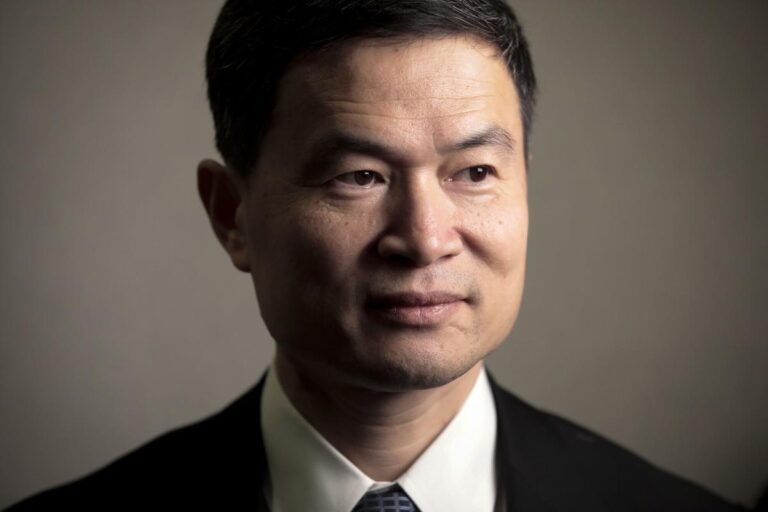
[ad_1]
(Bloomberg) — Chinese regulators met with global investors on Friday, according to people familiar with the matter, stepping up the government’s bid to boost market confidence as the country’s economic recovery loses steam.
Most Read from Bloomberg
China Securities Regulatory Commission Vice Chairman Fang Xinghai met with some global venture capital and private equity firms to hear their concerns about investment in the country, the people familiar said, requesting not to be named because the matter is private. Among those present were Neil Shen, founding partner of HongShan — formerly known as Sequoia Capital China — and representatives from GIC Pte. and Warburg Pincus. Temasek Holdings Ltd.’s China head Wu Yibing also joined.
Fang was accompanied by regulators from the securities watchdog and the Asset Management Association of China, the people said. Neither agency responded to questions about the meeting outside of business hours, nor did HongShan or GIC. Temasek couldn’t immediately provide a comment while Warburg Pincus representative declined to when contacted by text message.
The rare meeting with global funds comes after Chinese President Xi Jinping’s administration voiced its strongest support in recent years for the country’s private tech enterprises just days earlier. The government’s efforts, however, have been met with skepticism, as investors call for more concrete measures and stronger stimulus to revive growth.
Topics discussed at Friday’s meeting included steps that can be taken to ensure global funds can continue to invest in China, the people said. Regulators were urged to expedite procedures for overseas initial public offering registrations, accelerate listings in mainland China and relax merger-and-acquisition rules, one of the people said.
Escalating Tensions
Escalating tensions between China and the US, Beijing’s multi-year crackdown on its private sector and the country’s weakening economy are dampening investor interest. Private equity and venture capital firms have been struggling to attract institutional money from US endowments and pensions because of these long-term concerns.
This week, a US congressional committee said it was investigating four venture capital firms for their investment in Chinese technology companies, the latest sign of Washington’s increasing scrutiny of American funds suspected of helping develop sensitive industries in China. The entities under investigation are GGV Capital, GSR Ventures, Walden International and Qualcomm Ventures.
The US Department of State also recommended in June that Americans reconsider traveling to mainland China because of arbitrary enforcement of local laws and the risk of wrongful detentions, which spooked the business community.
Concerns about regulatory crackdowns in China have also weighed on the investment community. This month the Communist Party and the government issued a rare joint statement with 31 measures to improve conditions for businesses, including pledges to treat private firms the same as state-owned enterprises.
While that move won the backing of Chinese entrepreneurs including Tencent Holdings Ltd.’s billionaire co-founder Pony Ma, foreign companies are looking for more than rhetoric after two years of crackdowns and pandemic controls. The European Union Chamber of Commerce in China said its companies have been accustomed to “sweeping pro-business statements being made with little concrete action being taken.”
The government showed support for private equity and venture capital earlier this month when Premier Li Qiang approved the final rules on the 20 trillion yuan ($2.8 trillion) private fund market almost six years after a draft was released. While penalties on irregularities were toughened significantly, the new rule sets out a special chapter for venture capital, with looser requirements. It also exempted parent funds from some restrictions, benefiting private equity’s secondary market.
China’s sputtering economic recovery has sent a chill through global markets. Beijing has opted for targeted steps — instead of a broad stimulus — pushing for lower interest rates, easier access to credit and a series of measures to kickstart the moribund housing market.
Businesses are still waiting for signals from Xi’s new economic team that the policy environment will be more transparent and predictable. The president has repeatedly insisted that economic development is the Communist Party’s top priority, even as his government makes protecting national security a central focus.
–With assistance from Amanda Wang and David Ramli.
(Updates with details of more attendees from second paragraph.)
Most Read from Bloomberg Businessweek
©2023 Bloomberg L.P.
[ad_2]